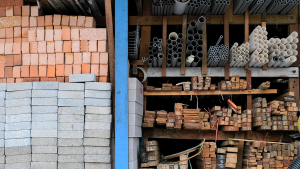As the always chaotic summer construction season begins to wind down and with the COVID-19 pandemic trending in the right direction, the Surety Corner team thought it would be a great time to check in with Terry Michalakos, the senior vice-president of surety at Aviva, for his insights into the current construction marketplace.
Michalakos has been a mainstay in the surety industry for 20-plus years, beginning his career as an underwriter at London Guarantee (now Travelers Guarantee), working for a period as a surety broker and later returning to the underwriting side to join the executive leadership team at Aviva.
Q: What are the top three practices of a good contractor in today’s marketplace?
A: Know your strengths and weaknesses. Focus on opportunities you know you and your team are good at, which is especially important with risks facing the construction industry today.
Robust contract administration. It is very rare you see a perfect set of drawings, don’t experience execution issues or run into misunderstandings or contractual disputes. Contracts are becoming more onerous and the burden is typically on the contractor to ensure the owner and their consultants are notified within tight timelines.
Communication. Address and communicate issues with key stakeholders as they arise. I often say to contractors, when you sign a contract or we issue our bonds you are married, whether everyone likes it or not. Everyone needs to put effort into managing these relationships. The vast majority of the time people are willing to step up and help solve whatever the issue is. Be open and honest.
Q: What do you feel are the biggest risks for contractors over the next 12 to 24 months?
A: Labour, material supply constraints and the effects of inflation on both. I don’t think either are new to most contractors. Labour shortages and the war for talent have been talked about for decades, but the supply side price shocks have had an impact on every contractor we talk to. Well managed contractors have weathered the impacts for the most part, helped by available government assistance programs, however, these programs are likely not going to be there beyond 2021. Global supply chain disruptions are real and going to exacerbate inflation in the near term. Contractors must be proactive for existing work under contract and diligent in pricing in these risks on new opportunities unless the buyers of construction services consider sharing in those risks.
Q: We are a few years into prompt payment, what impact has this had on contractors in general and does this change how Aviva will think from a surety perspective about the overall risk profile of contractors?
A: From our perspective the transition to prompt payment, for the most part, has been smoother than we originally anticipated. The vast majority of our clients, with the help from industry information seminars, put processes in place relative quickly and without any significant impacts to their already existing processes.
We believe open, honest communication is the best path, so for the most part the changes were a positive development. Our data is showing a reduction in payment disputes between owners, generals, subtrades and suppliers. From an overall surety risk perspective prompt payment is positive. On the flip side, the prescriptive response times have put pressure on our contractors and claim professionals to understand, what can be complicated matters, in a short period of time so it has added pressure and risks in other areas.
Q: In your opinion, what are some of the things the surety companies can do a better job of in providing service, flexibility and capacity to Canadian contractors?
A: For the most part I believe the surety industry does a decent job of providing capacity to Canadian contractors and offering flexibility where it is warranted. When coming across issues, be it on service, flexibility or capacity, often they were self-inflicted as an industry. Communication is key and, as noted above, is the responsibility of all participants.
Q: In a competitive surety marketplace in Canada, how does Aviva carve a niche for itself? What sets Aviva apart from the competition?
A: All reputable sureties want a partnership with their contractors and Aviva is no different. We take pride in always taking the time to meet, listen and understand our contractors, and offer solutions, be it creative or otherwise, that respect surety principles. You cannot do all that and have success without great people who enjoy what they do. It is easy to write these words but do we live them? Aviva has doubled its market share in the past decade by building a great team and earning each relationship one at a time.
Jamie Collum is the vice-president of construction for FCA Insurance. He has delivered numerous seminars and presentations on construction bonding and general industry updates in Ontario to various construction associations over the years. Andrew Cartwright is the vice-president of surety for FCA Insurance. With over 10 years of experience as an RVP of a large national surety company, Cartwright uses his expertise to help FCAs clients manage and build their surety capacity.
Send comments and column ideas to editor@dailycommercialnews.com.










Recent Comments
comments for this post are closed